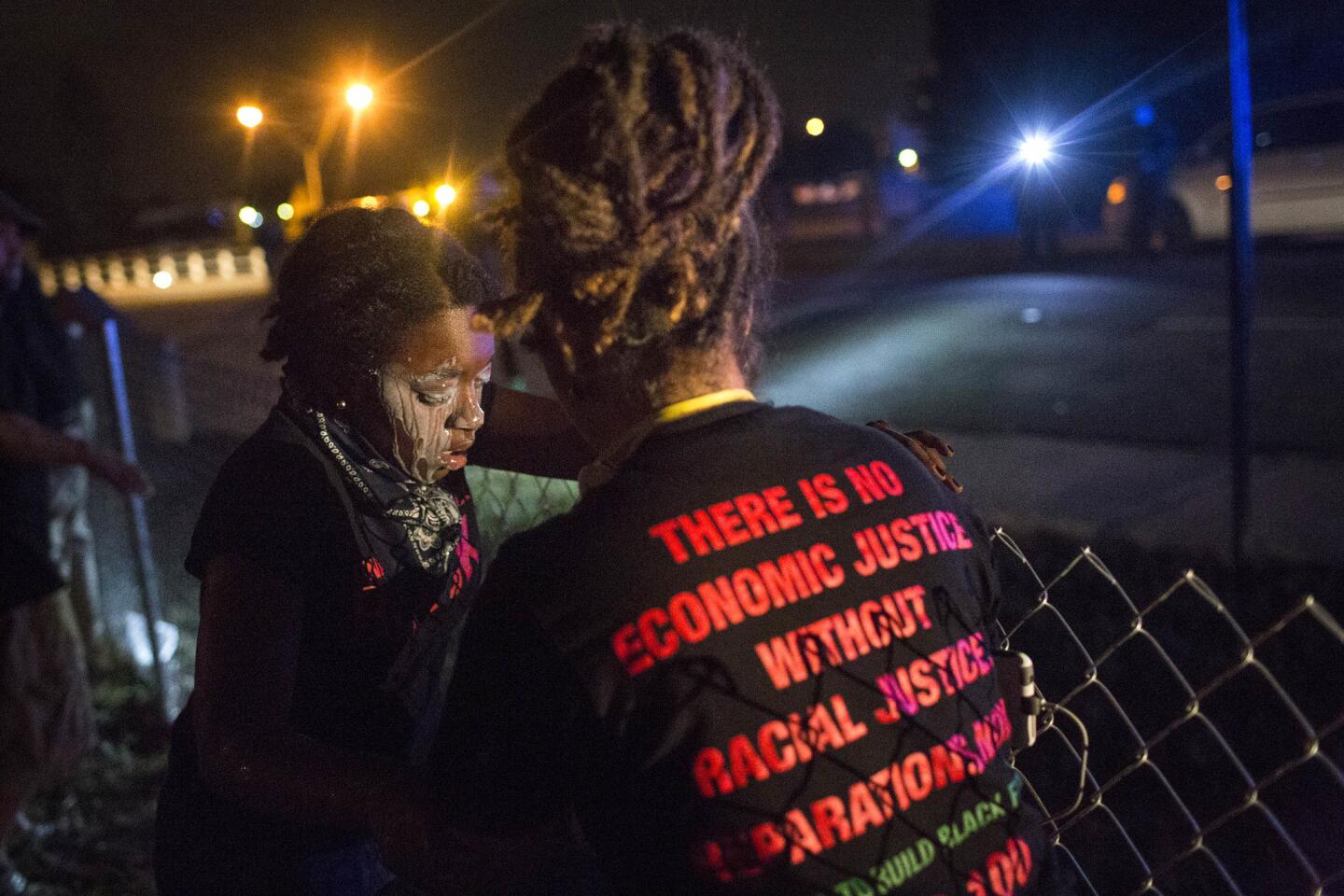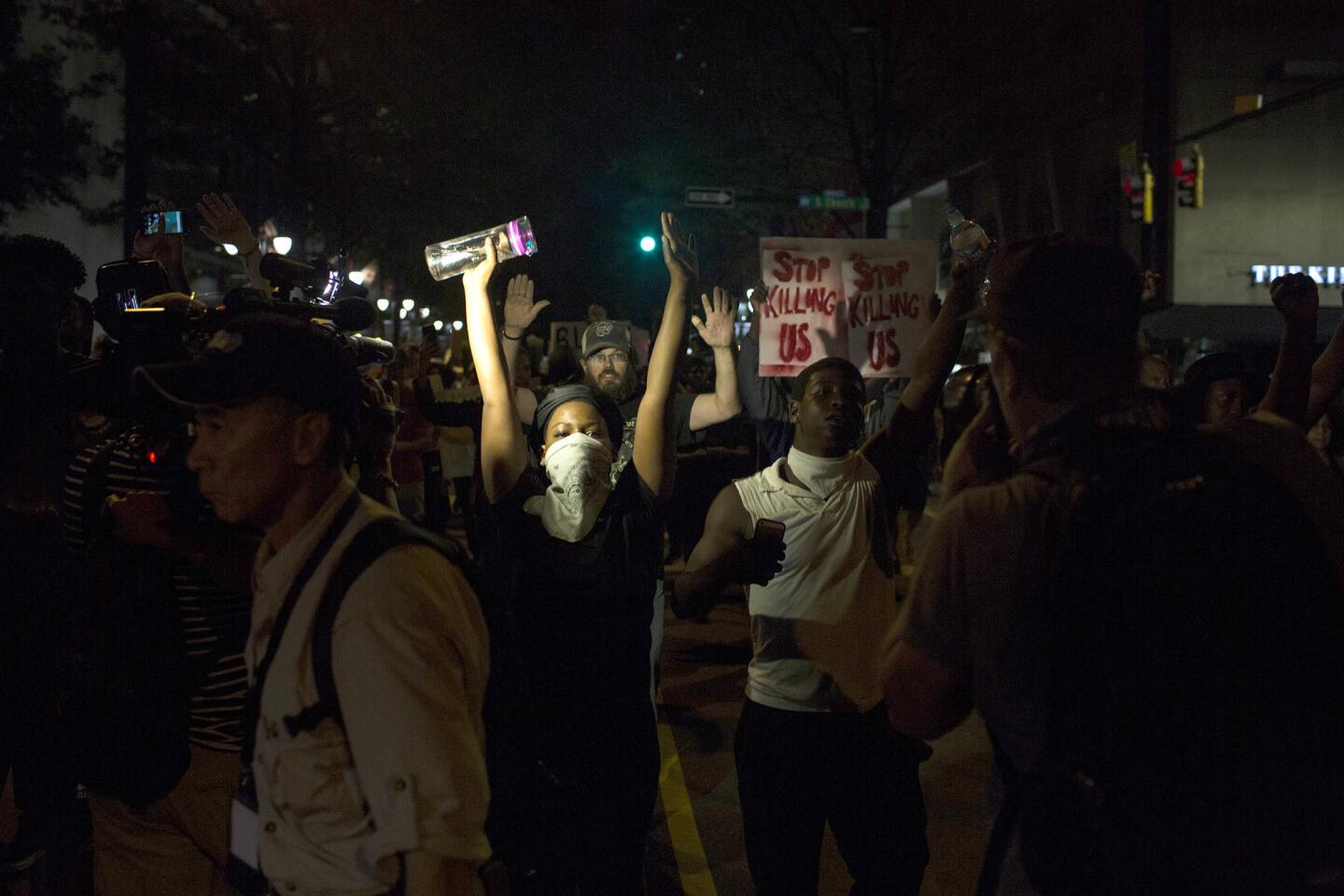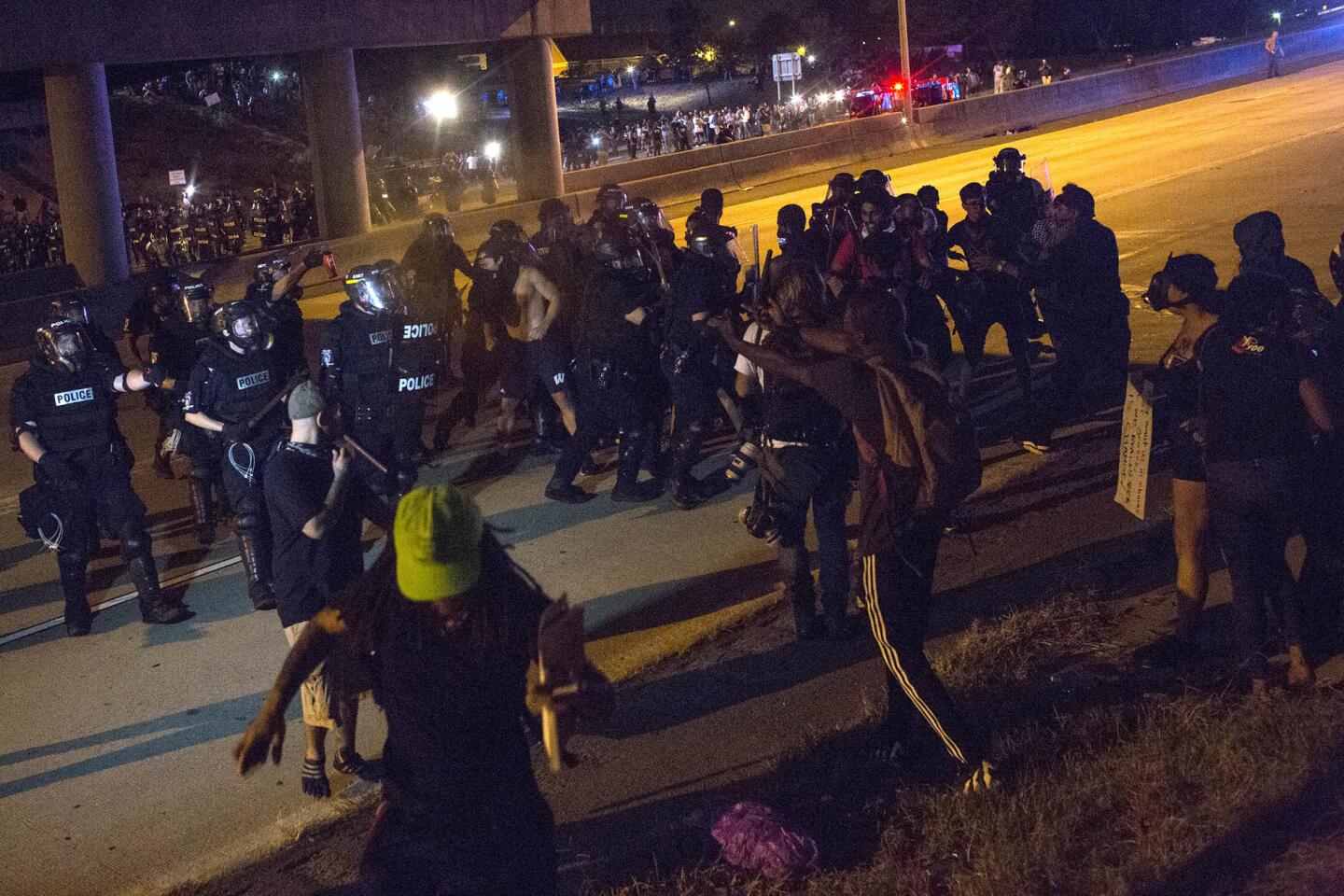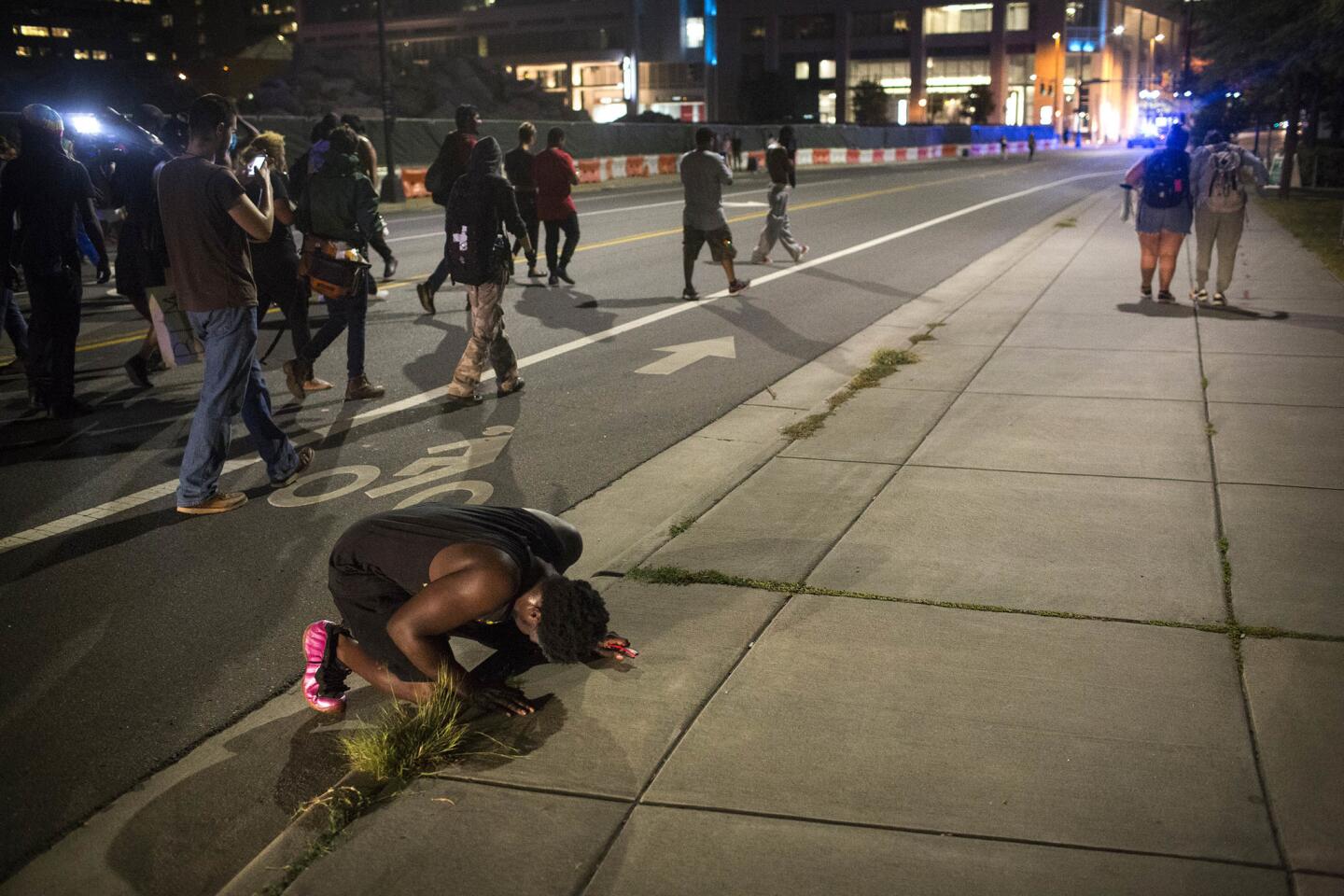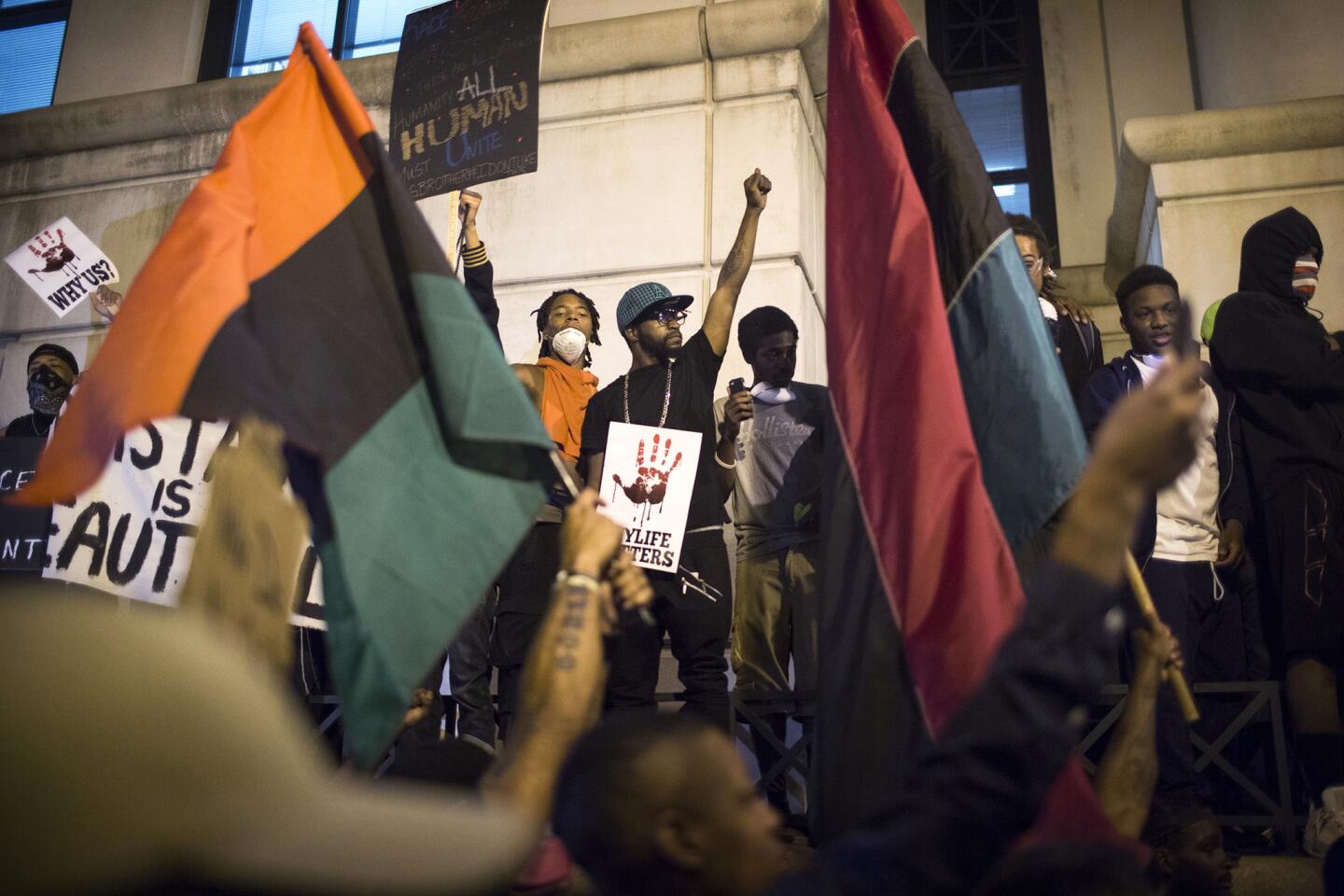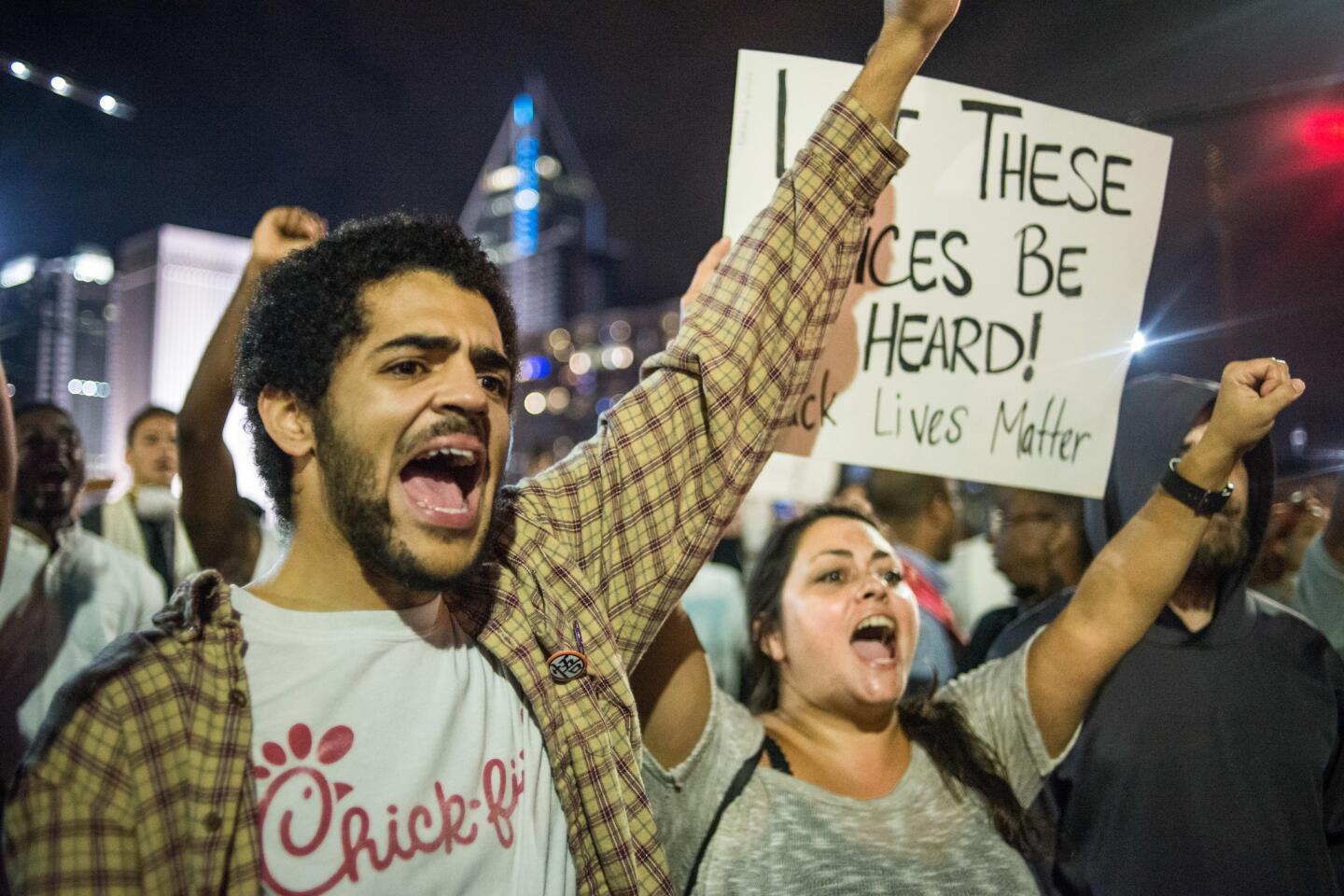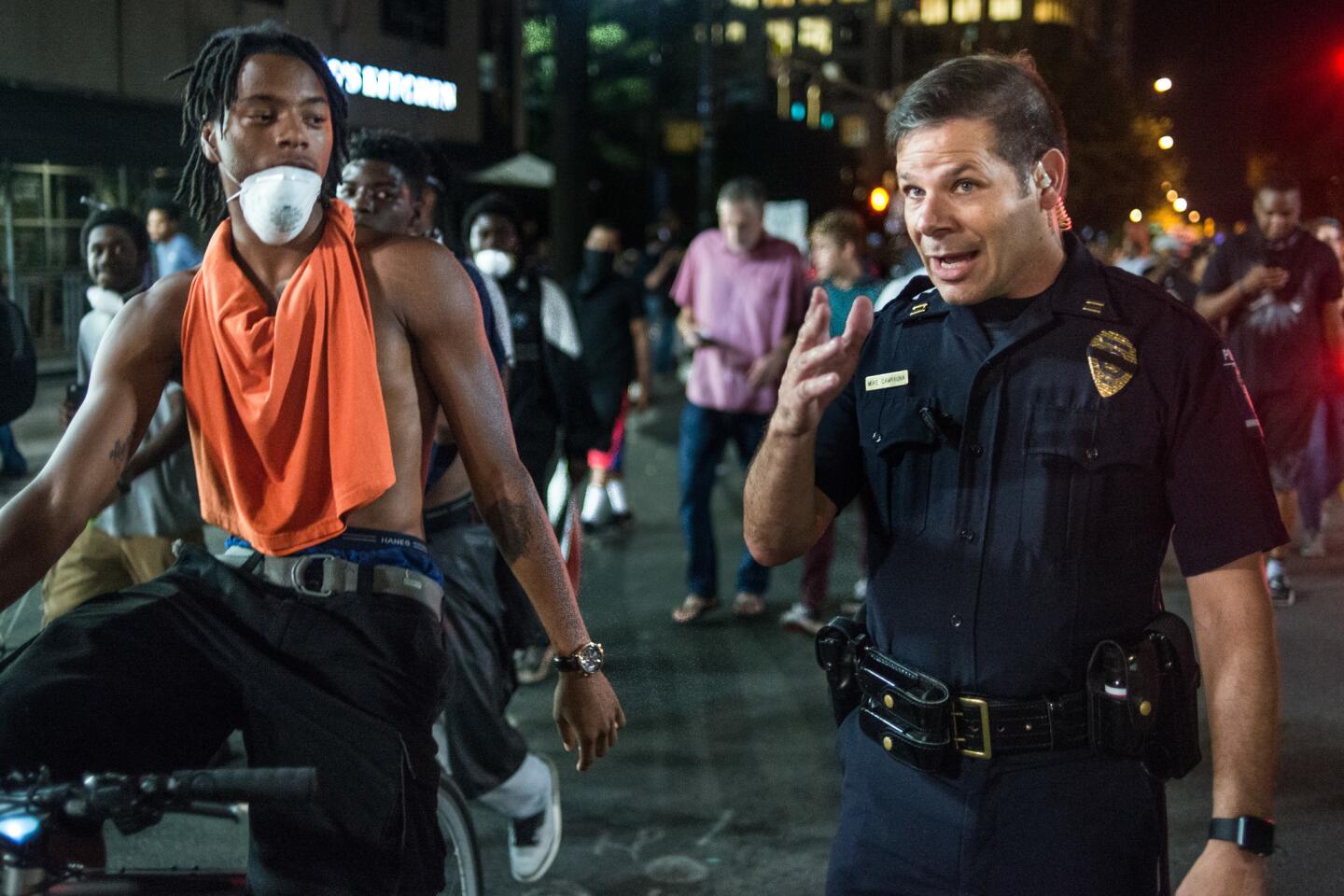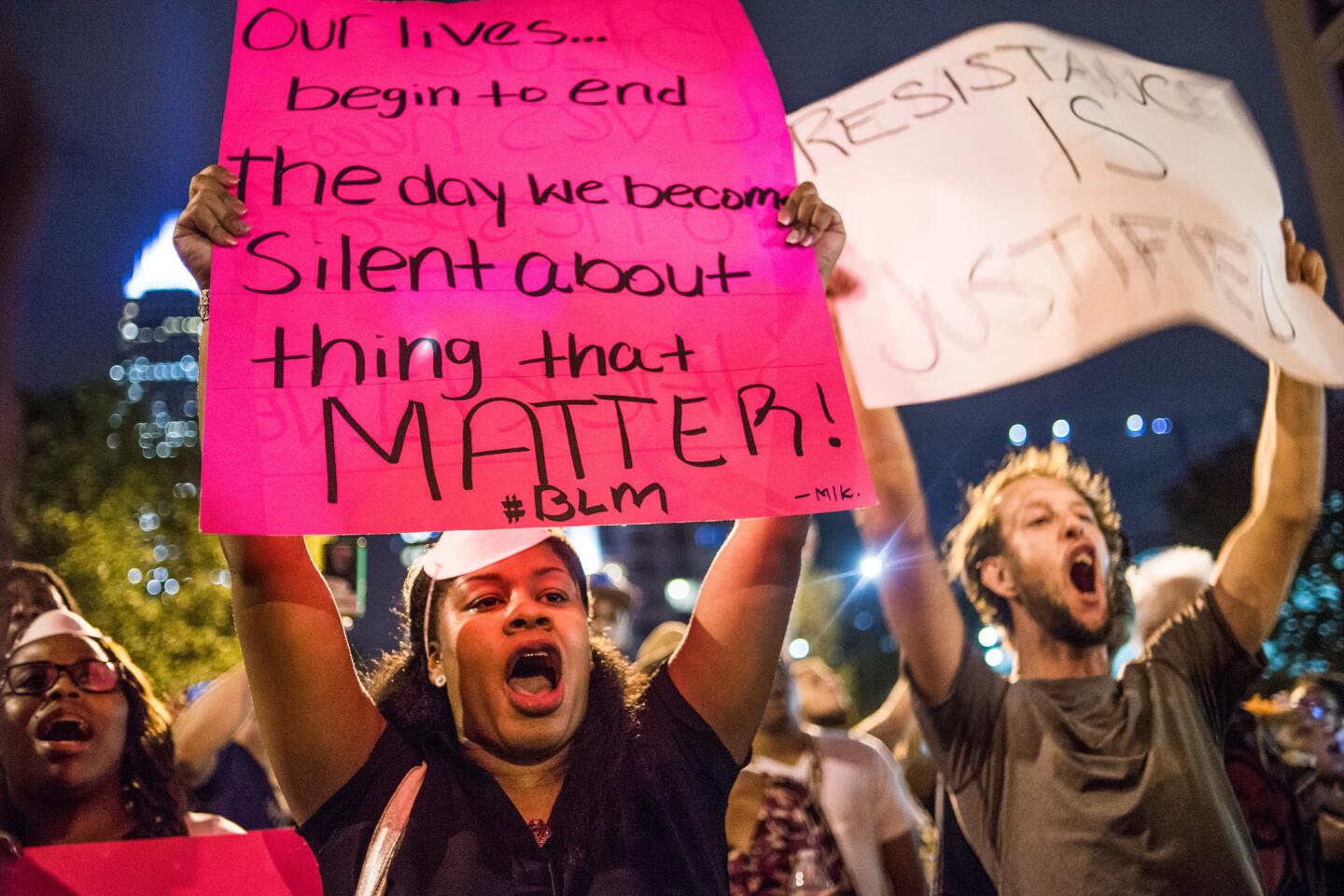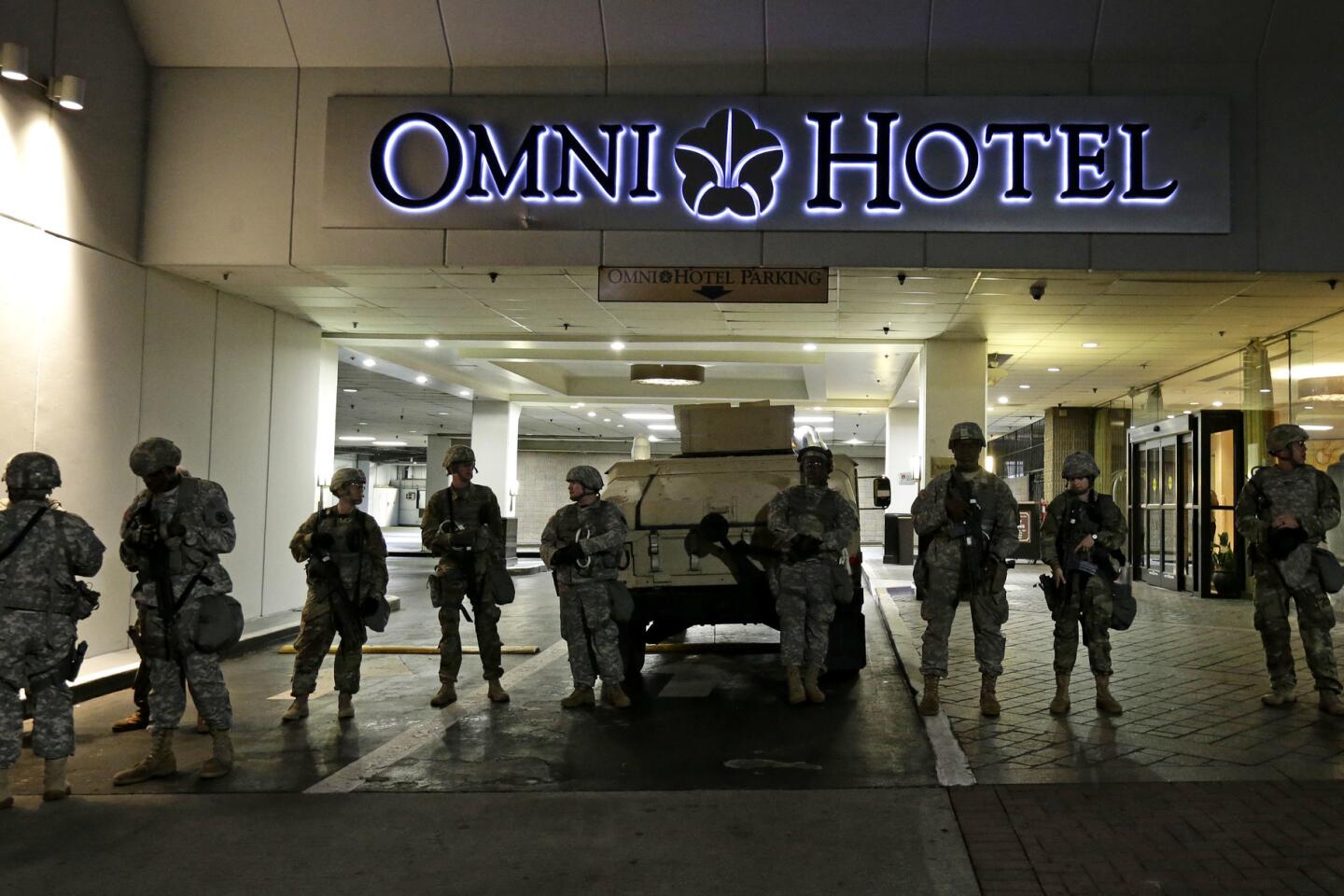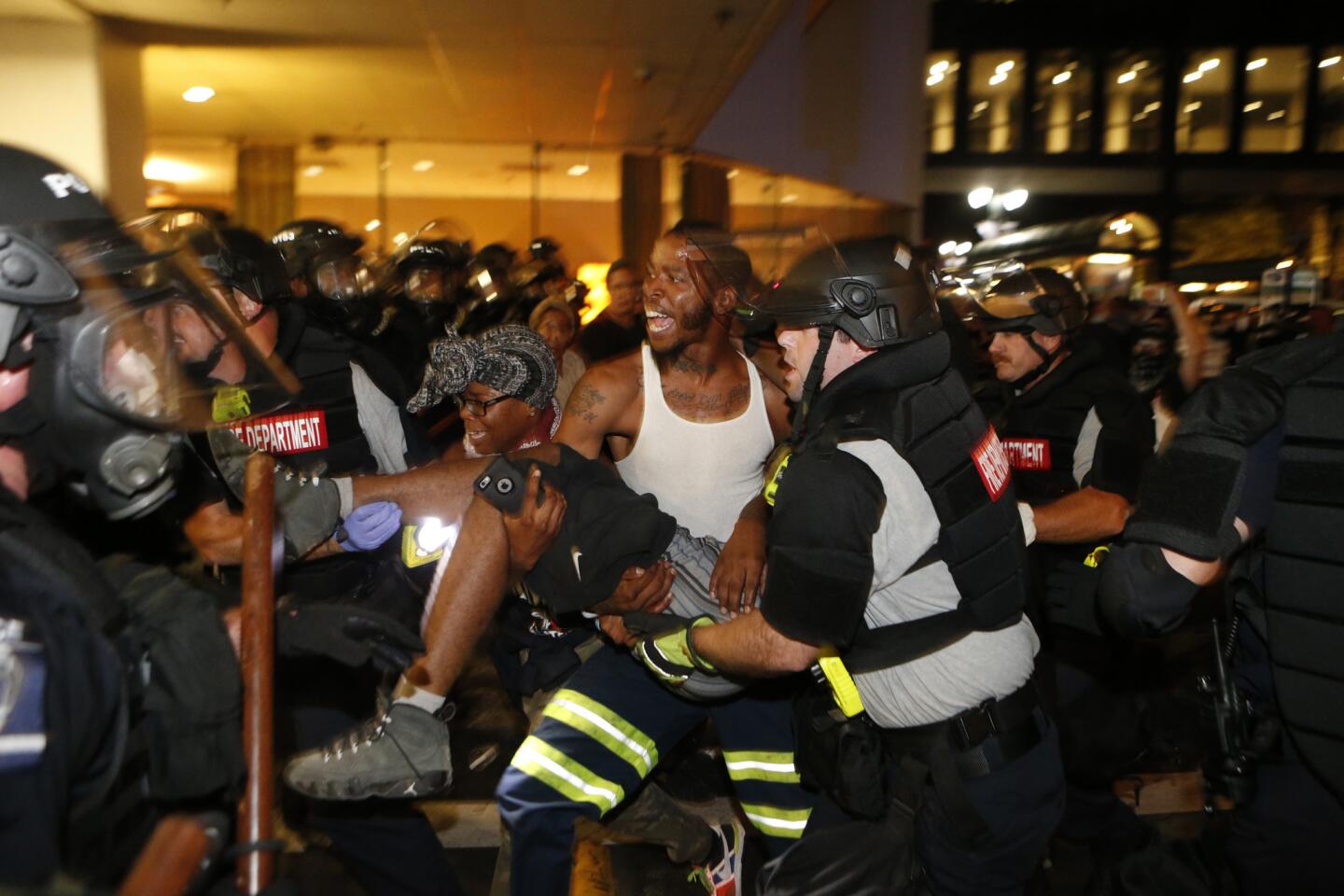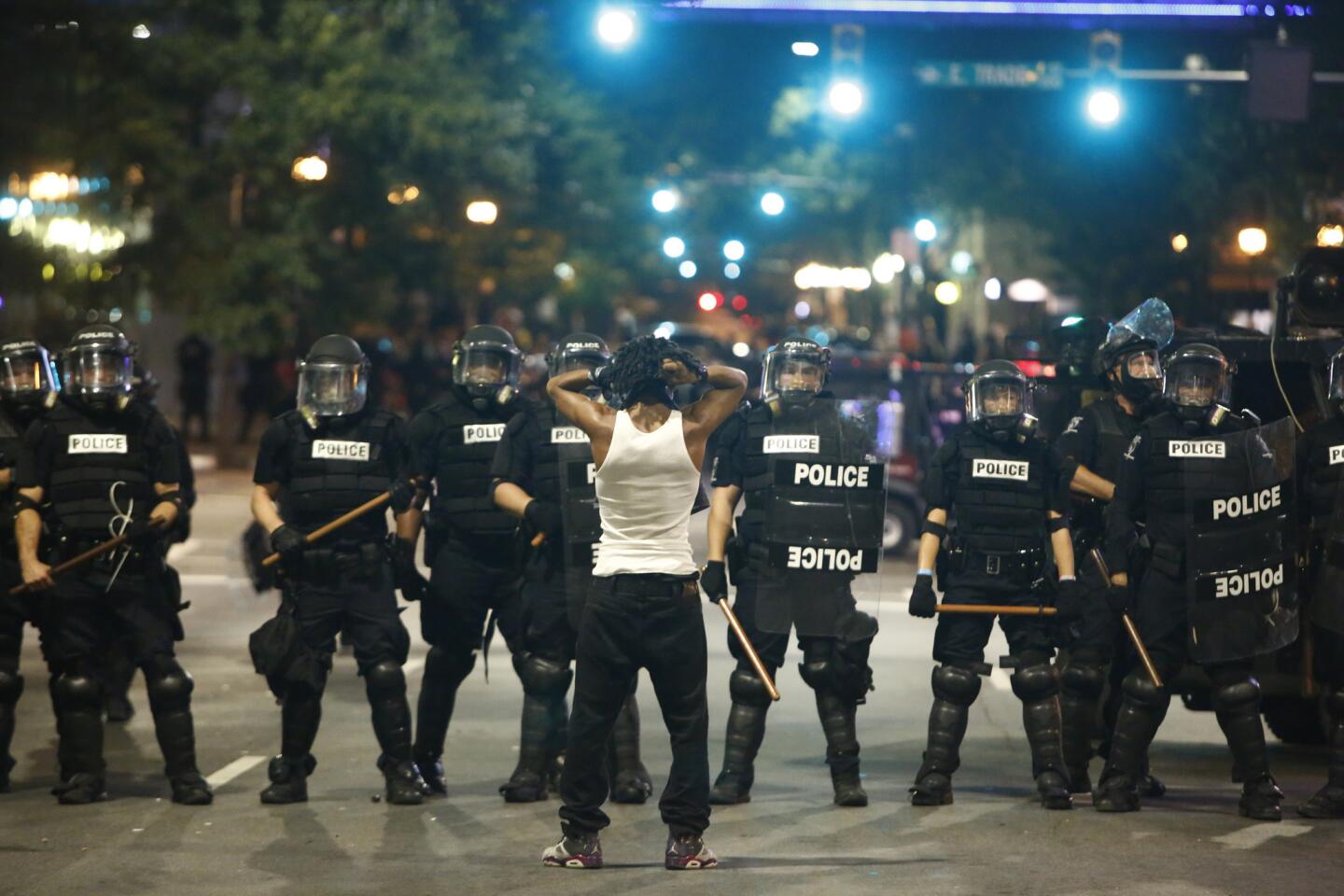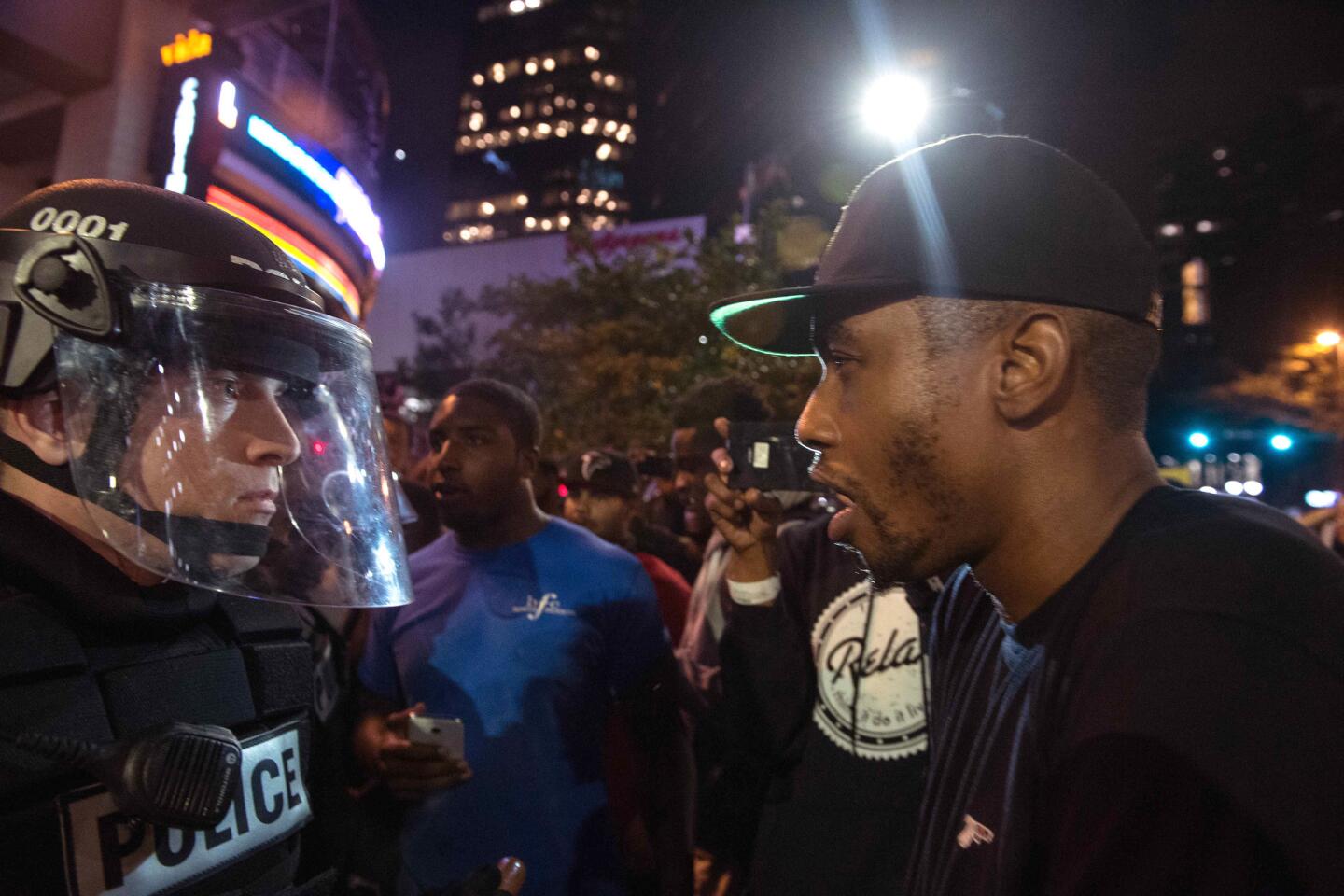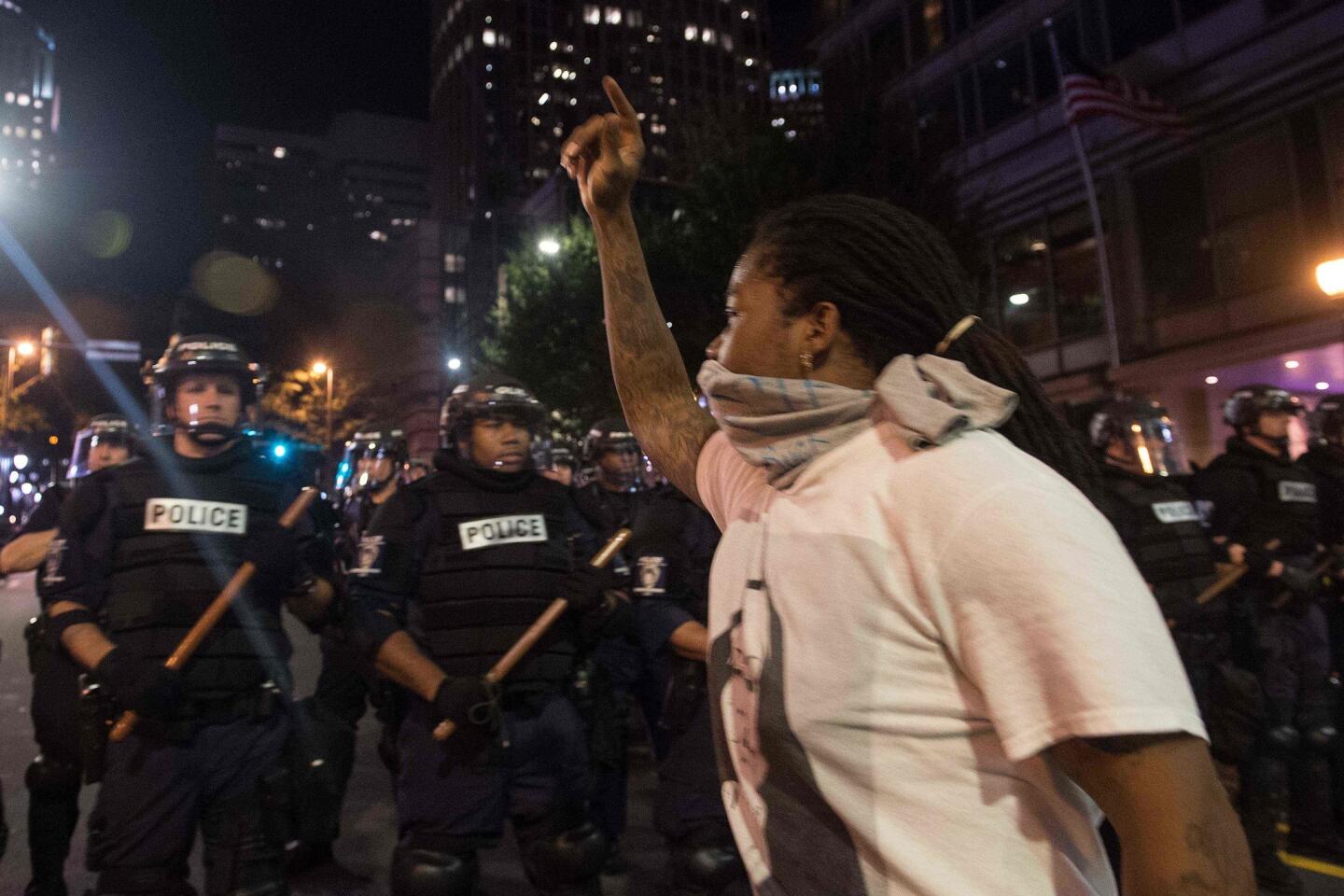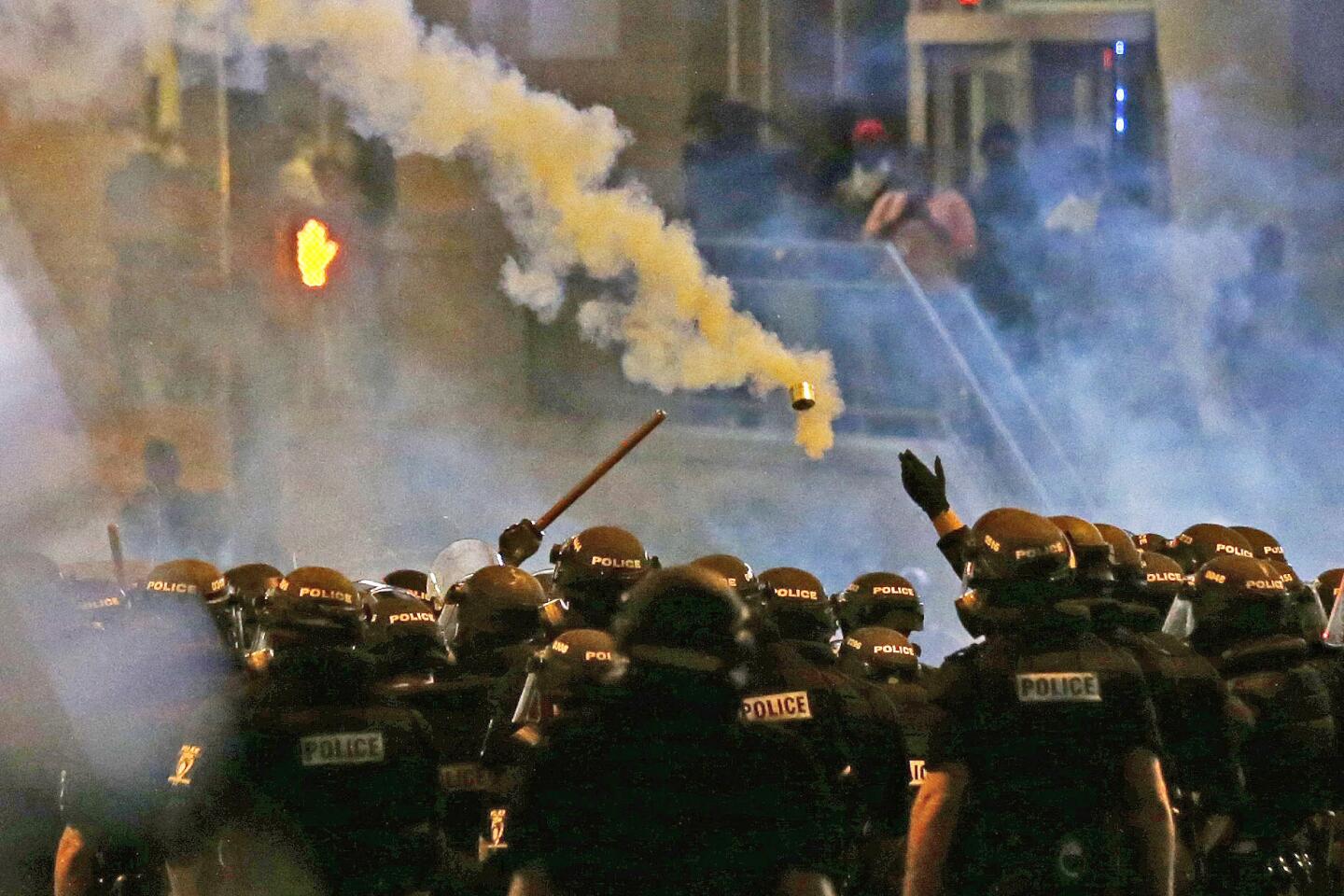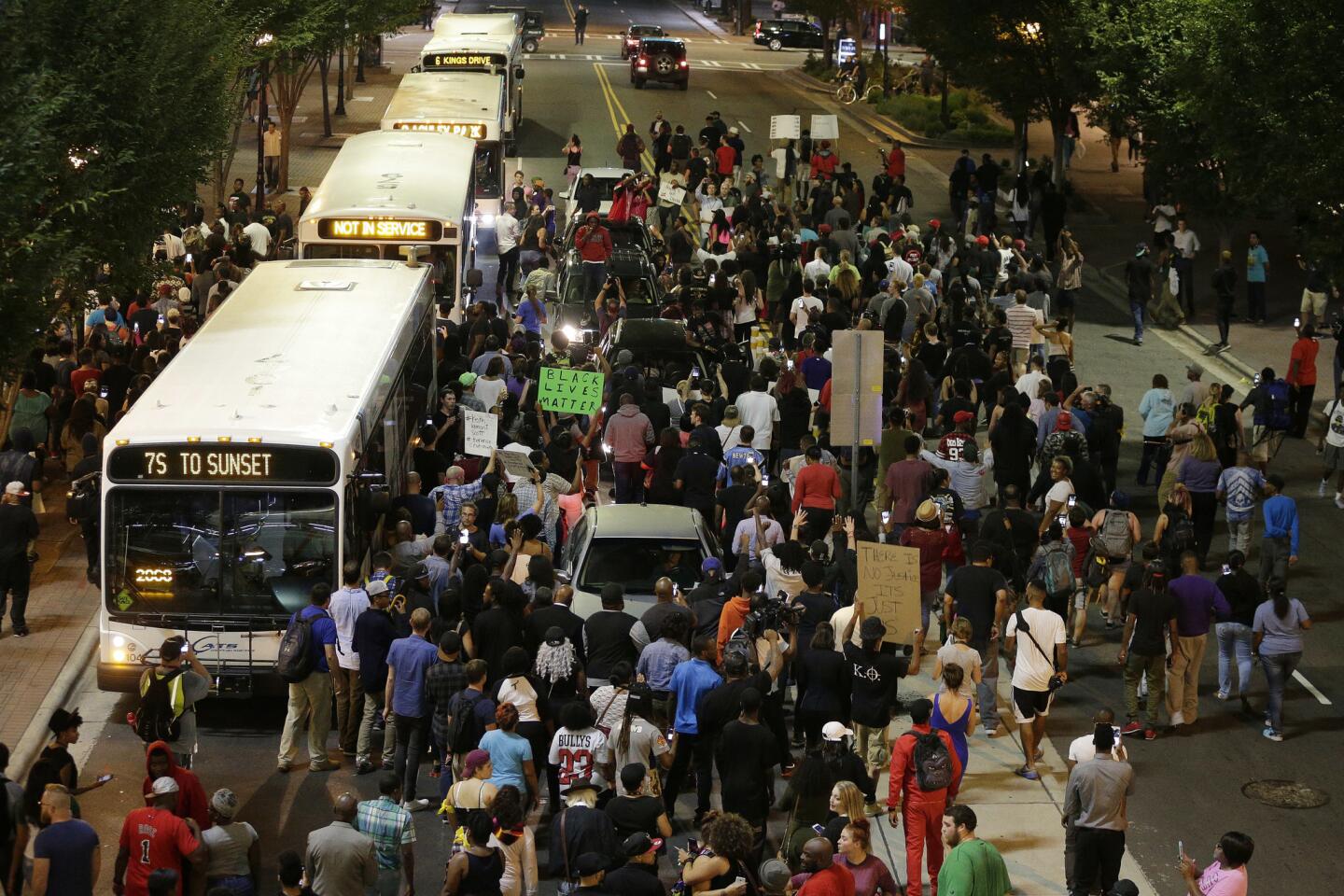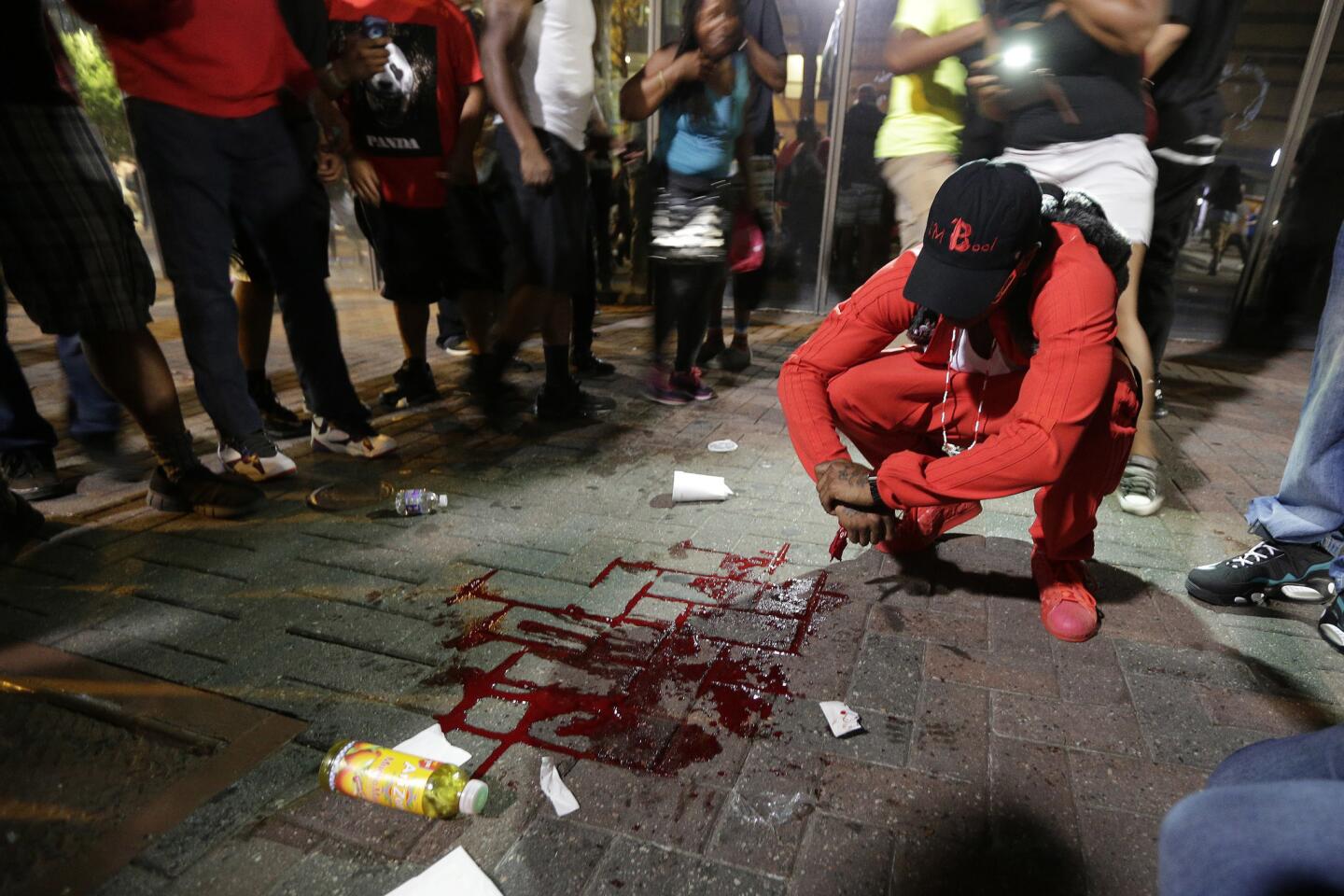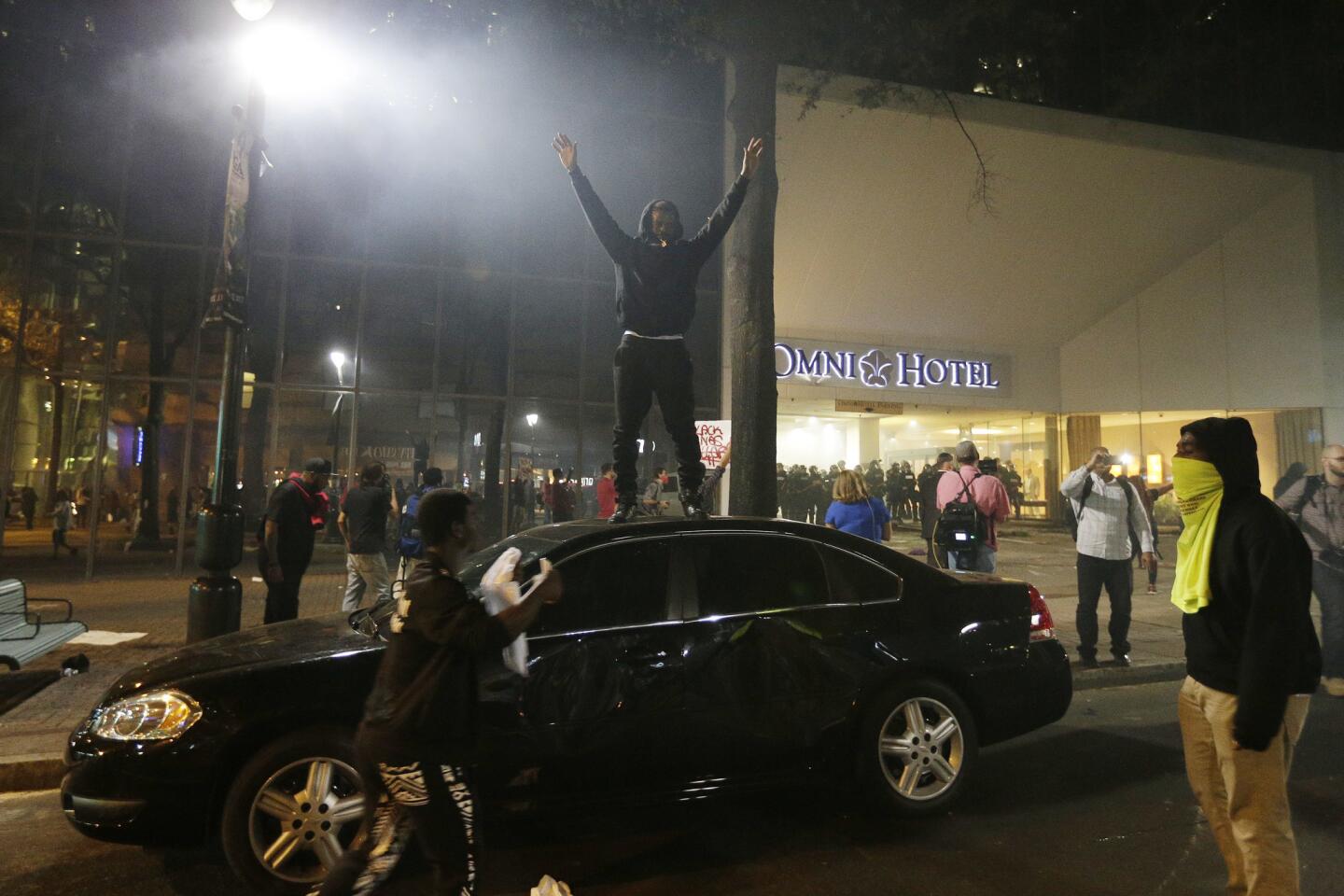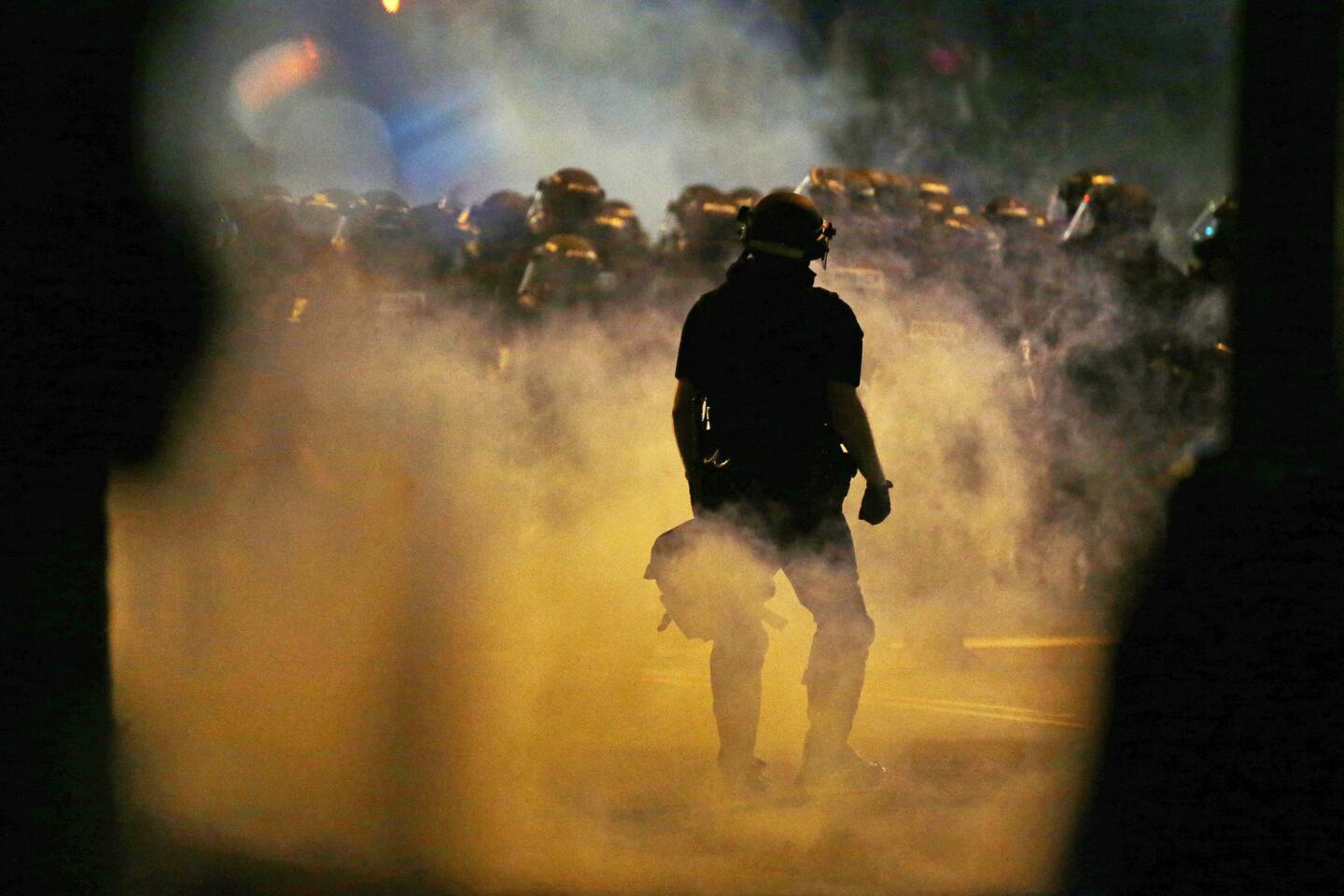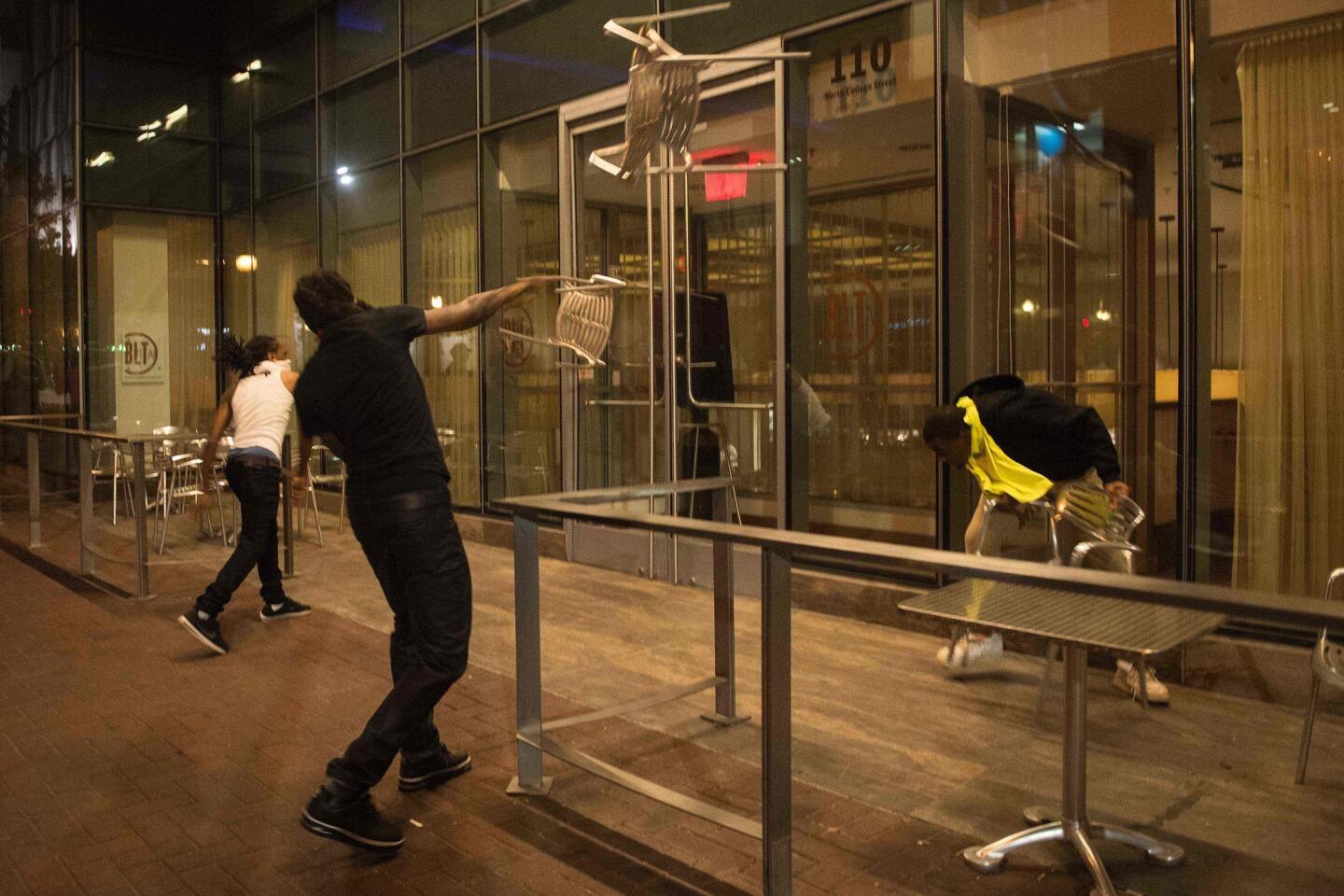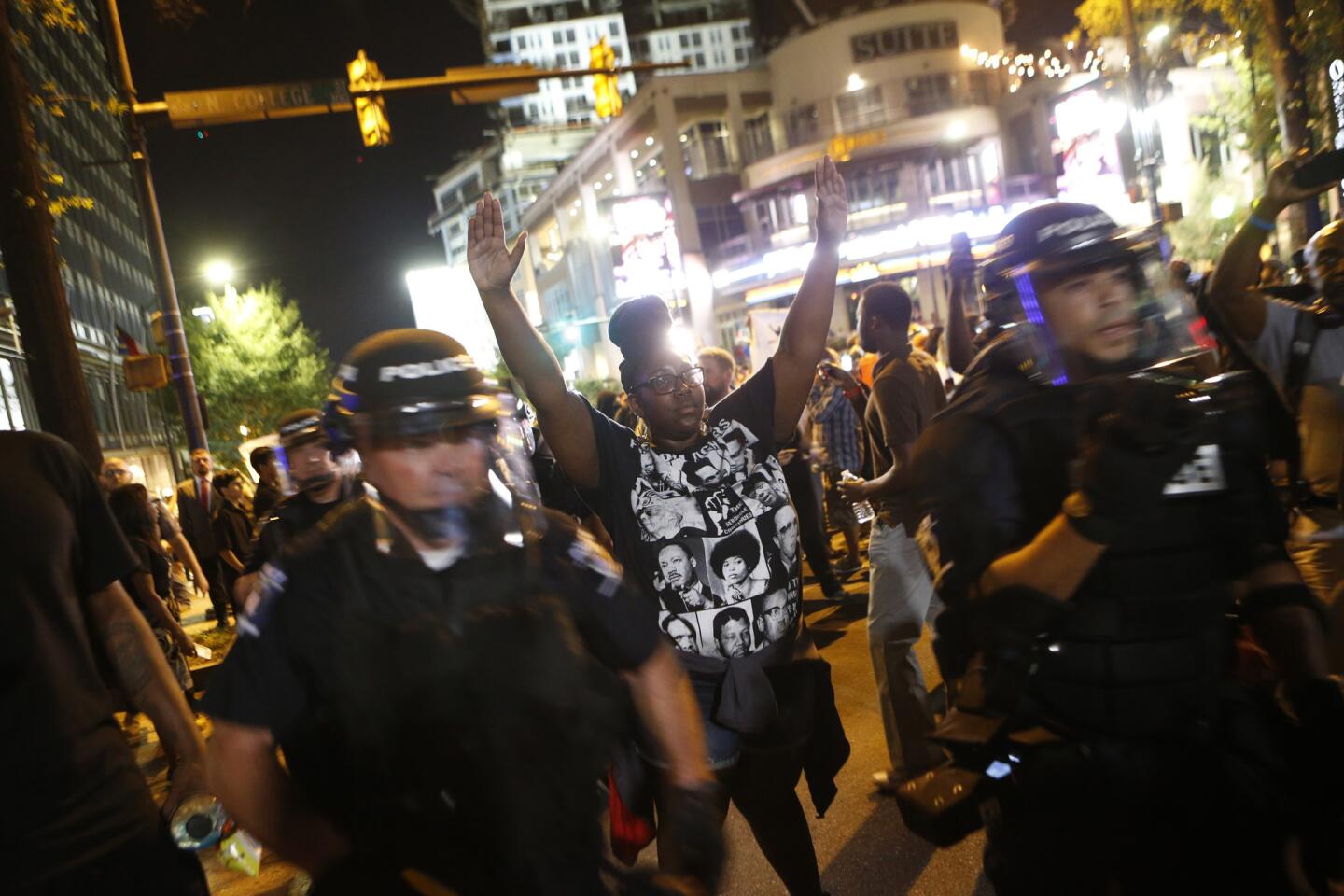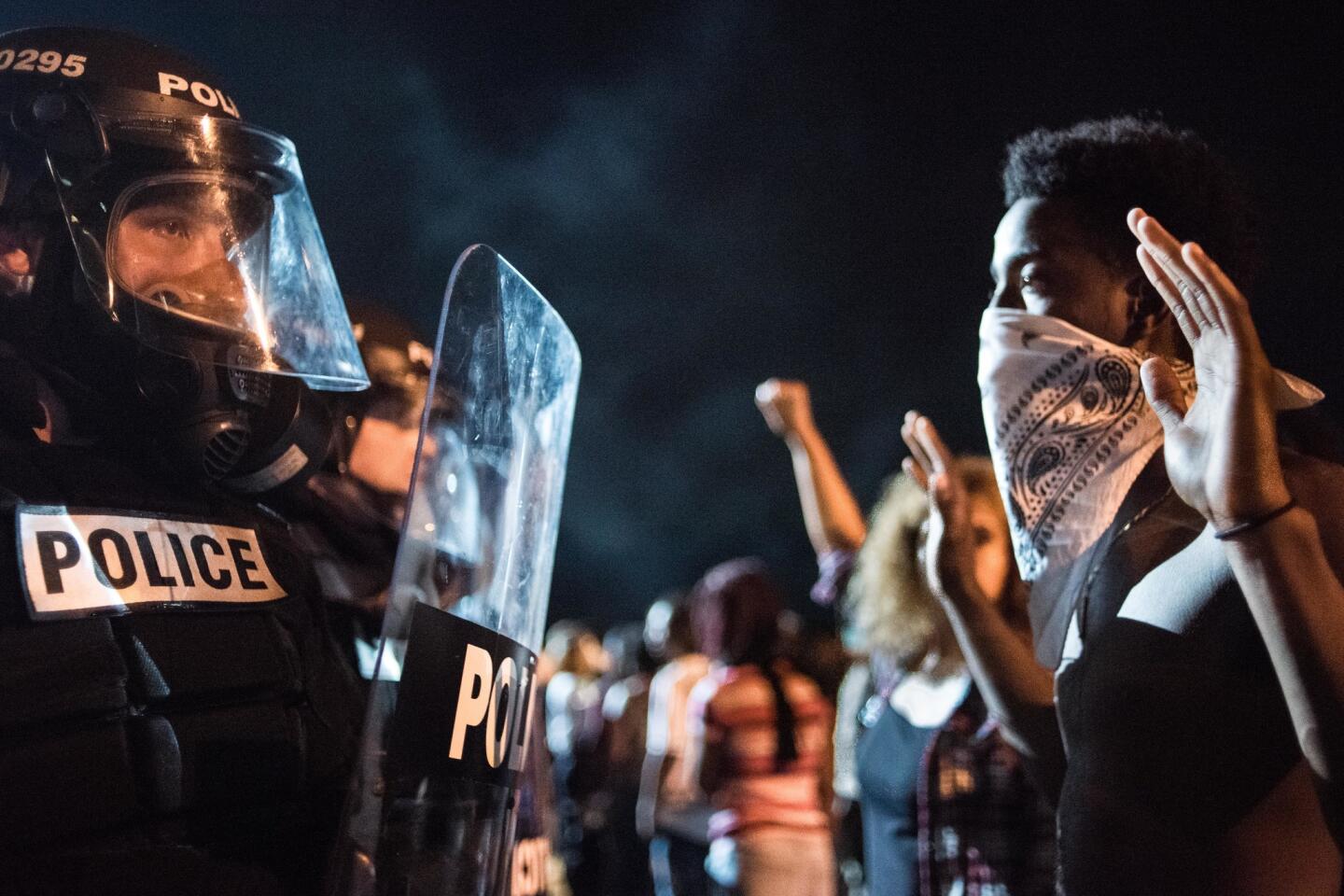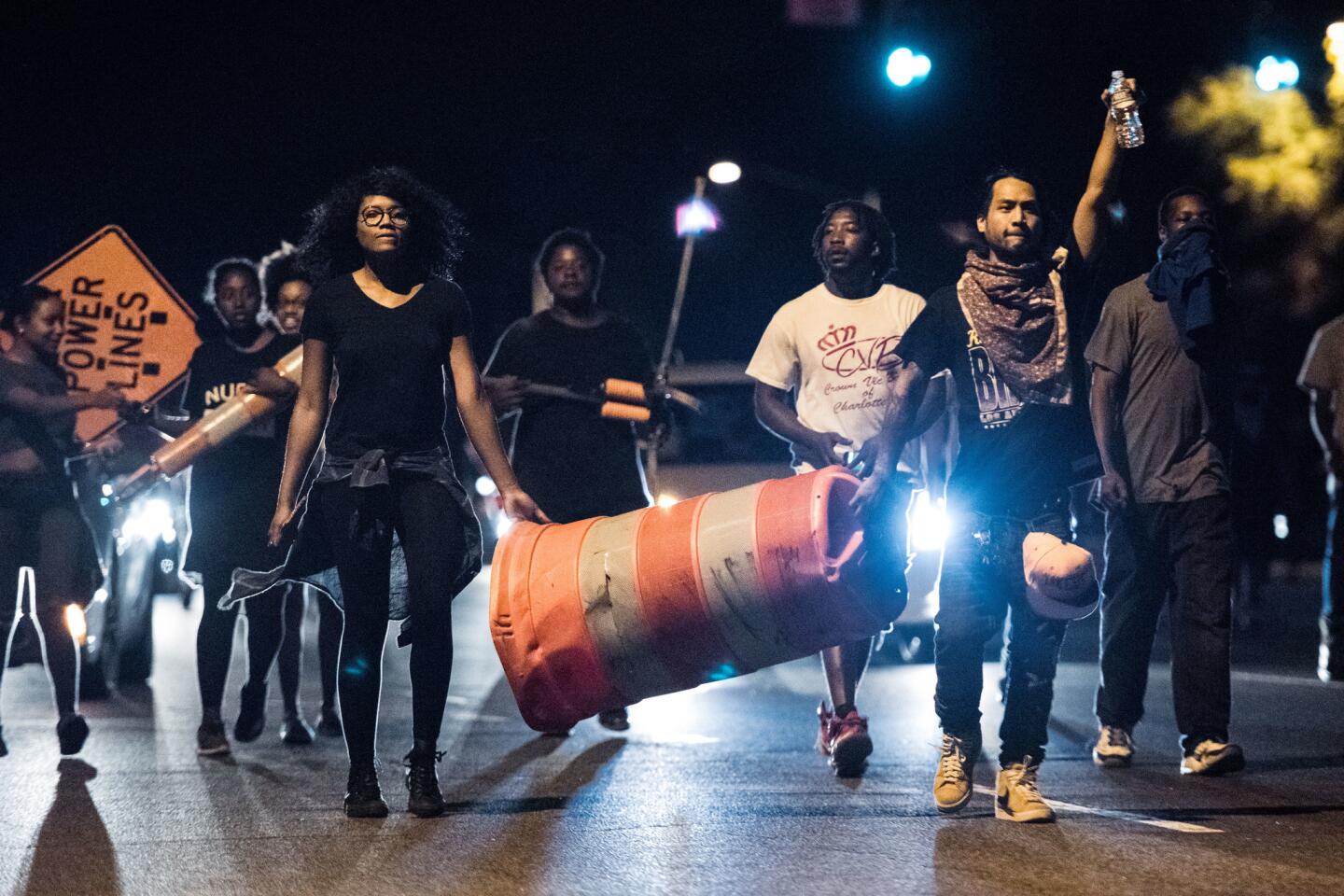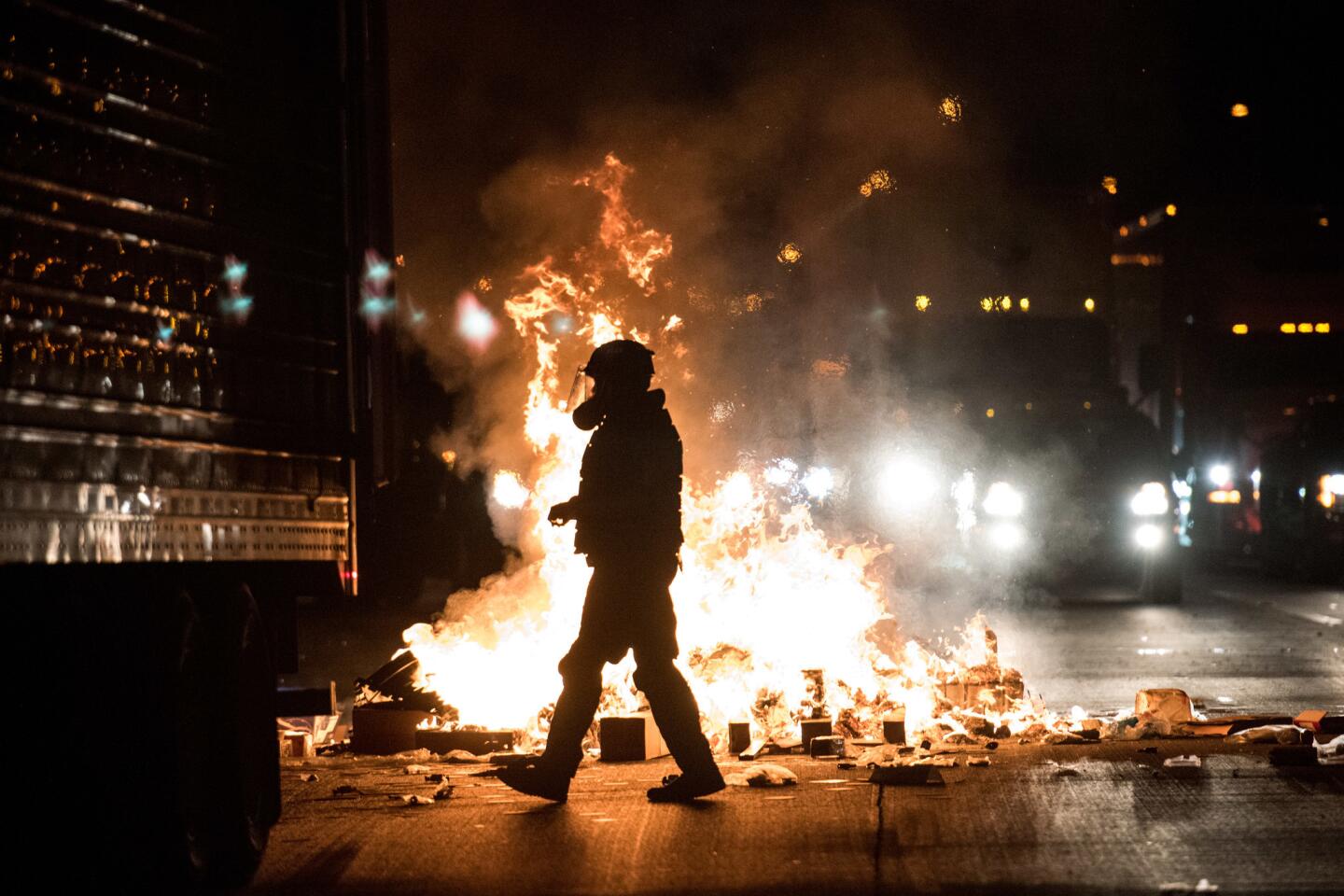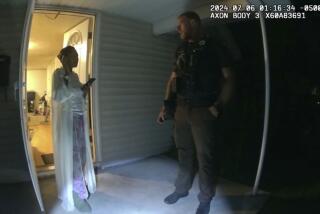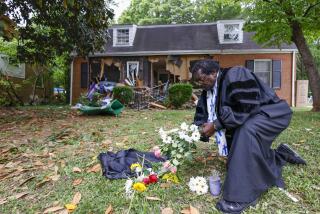‘Don’t shoot him,’ wife pleads to police in video of fatal Charlotte, N.C., shooting
Reporting from Charlotte, N.C. — In the shaky video she shot on her cellphone, Rakeyia Scott can be heard trying to save her husband’s life.
“Don’t shoot him!” she shouts to the Charlotte, N.C., police officers who surrounded her husband this week in the parking lot of a condominium complex. “He has no weapon.”
As police officers scream at 43-year-old Keith Lamont Scott — “Drop the gun! Drop the gun!” — his wife tells them: “He doesn’t have a gun.”
Soon four shots can be heard, followed by Rakeyia Scott’s screams.
“Did you shoot him? Did you shoot him? Did you shoot him?” she screams as she walks closer to the scene, still recording with her phone. “He better not be dead, he better not be … dead.”
Soon, she was using the phone to call 911, her husband’s body splayed on the ground.
Attorneys for the Scott family on Friday released the first publicly available video of Tuesday’s shooting as Charlotte continued to reel from days of protests that have focused, in part, on city officials’ refusal to release police footage of the incident.
“Release the tapes!” has become a familiar refrain on Charlotte’s streets. Republican presidential nominee Donald Trump has called for an end to “the rioting” in Charlotte, while Democratic nominee Hillary Clinton zeroed in on the video, calling for release of the footage “without delay.”
Suspect arrested in Charlotte protester’s shooting death, chief says »
The debate in Charlotte has once again highlighted the uneven level of transparency that exists in cases of police shootings across the U.S.
Days earlier, police in Tulsa, Okla., had quickly allowed the public to see disturbing video of another line-of-duty shooting, this one involving a white police officer and a black motorist who died with his hands in the air.
Many cities do not have fixed policies about when to release crucial footage of a police shooting, and such killings frequently turn into chaotic political struggles. In many cases, family members, activists and social media users turn up the pressure on local officials, as happened Friday in Charlotte, by releasing their own footage.
The public now may have media tools as good as or better than those of the police. Encounters with police are sometimes now live-streamed as they happen, a tactic clearly intended to influence the outcome in real time.
After a shooting, members of the public can release their own footage when they believe that police have not described an incident truthfully.
Such pressure is unusual for police investigators, who in other kinds of cases are typically allowed to hold off on releasing video recordings of an incident. The reasons are many. A video of a crime, for example, can often be used to test whether a suspect is lying or a witness is remembering an incident accurately.
Indeed, release of a video may cause confusion about whether a witness is describing what they saw during a crime or what they saw on the video.
Charlotte police Chief Kerr Putney has said release of the official video would be counterproductive and could potentially compromise the integrity of the investigation — though in a small concession, he did permit Keith Scott’s family to view it.
“It’s not that I want to hide anything,” Putney said at a news conference Friday morning. “I want to be more thoughtful and deliberate. If I were to put it out indiscriminately and it doesn’t give you good context, it can inflame the situation, exacerbate backlash, increase distrust.”
Charlotte Mayor Jennifer Roberts said she believes the tape should be made public, though not necessarily right now.
“I lean towards transparency in everything our city does,” Roberts said Friday, but she emphasized that the question is one of timing.
“I know there’s a delicate balance when there’s an ongoing investigation. If one piece is released early, it can jeopardize the integrity of the investigation,” she said. “If you have already seen something on the Internet, it can cloud your memory, it can alter what you think you saw.”
In July, North Carolina lawmakers passed a law that prohibits the release of footage taken by law enforcement without a court order. That law does not go into effect until Oct. 1, however.
Scott’s fatal encounter with the police began Tuesday afternoon when officers confronted him outside a Charlotte condominium complex. Police say Brentley Vinson, a 26-year-old black officer, was looking for a suspect with an outstanding warrant — not Scott — and approached Scott shortly before 4 p.m.
According to the police account, Scott stepped out of the truck with a gun, and then got back in the truck. Police said that they told Scott to drop the gun but that he got back out of the vehicle with the weapon and “posed an imminent deadly threat.”
Scott’s family has insisted he was holding not a gun, but a book.
Neither the official video, as the police describe it, nor Scott’s wife’s cellphone footage appear to answer the question definitively. Putney has said that while the police video footage doesn’t offer “absolute definitive visual evidence” that would confirm Scott was pointing a gun, the “totality of all other evidence” supported the police account of his death.
Rakeyia Scott’s cellphone footage, which is shaky and taken for the most part from behind police vehicles, also does not clearly show the moment when her husband was shot by police. In the video, Rakeyia Scott tells the officers he has a “TBI,” a traumatic brain injury.
“He’s not going to do anything to you guys. He just took his medicine.”
In the video, Rakeyia Scott also directs orders to her husband as officers move in, with one of them asking for a baton.
“Keith, don’t let them break the windows!” she says, her voice quivering.
“Come on out the car,” she insists. “Keith, don’t do it!”
“Keith, get out the car,” she says again, her voice rising. “Keith, Keith, Keith — don’t you do it!”
After the shots are fired, Scott is seen splayed on the ground, not moving, and surrounded by officers. His wife then calls 911.
On Friday, Putney pushed back against expectations that the police footage of Scott’s death “will be a panacea.”
“I can tell you that will not be the case,” he said, adding that investigators are still interviewing witnesses and reviewing evidence. “The process is painstakingly slow sometimes. It’s going to take them some time to piece together everything that happened.”
Kaleem reported from Charlotte, Jarvie, a special correspondent, from Atlanta, and Pearce from Los Angeles.
ALSO:
Charlotte protests continue, but new curfew passes without incident
Criminal charges in Tulsa police shooting may prevent unrest, in contrast to Charlotte protests
Charlotte, N.C., has prospered in recent years, but many black residents have been left behind
UPDATES:
5:54 p.m.: This article was updated throughout.
1:05 p.m.: This article was updated with information on the arrest of a man in the fatal shooting of a black demonstrator in Charlotte, N.C., and additional comments from the city’s police chief, Kerr Putney, and an attorney for the Scott family.
11:50 a.m.: This article was updated with details of the video.
This article was originally published at 10:55 a.m.
More to Read
Sign up for Essential California
The most important California stories and recommendations in your inbox every morning.
You may occasionally receive promotional content from the Los Angeles Times.
